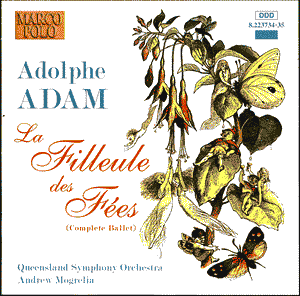 Composer: Robert Schumann
Composer: Robert Schumann
Works: Fantasiestücke, Opus 12; Papillons, Opus 2; Carnaval, Opus 9
Performers: George-Emmanuel Lazaridis (piano)
Recording: 25-26 October 2000, St Philip’s Church, London, SW16
Label: SOMM SOMMCD 024
Robert Schumann’s piano music occupies a unique position in the Romantic canon, characterized by its emotional depth and psychological complexity. Schumann initially approached composition through the lens of piano works, crafting shorter pieces that convey varied moods while often exploring a unifying thematic idea. This recording by George-Emmanuel Lazaridis showcases three significant works—Fantasiestücke, Papillons, and Carnaval—each epitomizing different aspects of Schumann’s compositional voice and the challenges inherent in executing them.
Lazaridis’s interpretations reflect a commendable understanding of Schumann’s idiom, particularly in his nuanced approach to the Fantasiestücke. The opening movement, “Des Abends,” demonstrates his ability to balance lyrical lines with dynamic subtleties, establishing an atmosphere that is both intimate and expansive. The pianist’s rhythmic precision in pieces like “Aufschwung” enhances the inherent tension, although one might wish for slightly more exuberance to match the piece’s emotional peaks. However, it is in “In Der Nacht,” the fifth movement, where Lazaridis truly excels; here, the mood is palpably evocative, capturing the nocturnal essence that Schumann so deftly conjured.
While Papillons, with its lighter character and episodic structure, does not cohere as powerfully as the other works, Lazaridis navigates its challenges with skill. The inherent disjointedness of the piece may seem to resist unity, a quality that demands an artist of exceptional interpretive insight to transcend. Although Lazaridis imbues it with charm, it lacks the dramatic tension found in the more substantial compositions. For instance, the playful nature of the work may benefit from a more vigorous articulation that could underscore its wit and whimsy, reminiscent of recordings by legendary interpreters such as Claudio Arrau, whose command over this repertoire is well-documented.
Carnaval, arguably Schumann’s crowning achievement in the realm of piano literature, receives a commendable performance from Lazaridis. His ability to transition seamlessly between the character pieces, particularly in “Chopin,” exemplifies a keen interpretative vision. The subtle shifts in focus and dynamics throughout the suite illuminate the multifaceted nature of Schumann’s character sketches. While one might argue for a more pronounced articulation in certain moments, such as the intricate interplay in “Pantalon et Columbine,” these are minor points in an otherwise compelling interpretation.
The recording quality itself merits recognition; the acoustic of St Philip’s Church provides a warm resonance that enhances the clarity of Lazaridis’s playing. The use of a Fazioli piano elevates the listening experience, delivering a tonal richness that complements the emotional landscapes of Schumann’s music. The production standards of SOMM are commendable, with informative liner notes that contextualize the works and the artist’s interpretations.
George-Emmanuel Lazaridis emerges as a pianist of considerable promise in this Schumann recital, demonstrating a profound sensitivity to the music’s inherent complexities. His interpretations reveal both the charm and the depth of Schumann’s piano oeuvre, effectively balancing the whimsical with the profound. While there are moments where greater intensity could enhance the overall impact, the performance remains a significant contribution to the recorded legacy of Schumann’s music, marking Lazaridis as a noteworthy interpreter worthy of attention.



